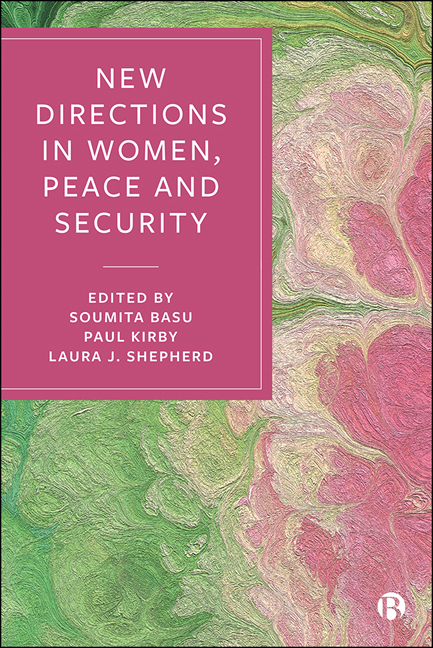Foreword: Toward Strategic Instrumentalism
Published online by Cambridge University Press: 12 March 2021
Summary
This collection of essays explores the consequences of hitching a transformative feminist project to the vehicle of transnational security and international legal institutions. Chapters exposing neo-imperialist elements of implementation, as well as the consequences of retributive and carceral reactions to injustice, show that fitting the Women Peace and Security (WPS) agenda to the norms and practices of security and prosecutorial institutions can fail to transform structural inequalities and their cultural foundations. It doesn't help that the gender essentialism informing some aspects of the WPS agenda has made it vulnerable to a specific pattern of implementation that confirms patriarchal expectations about women's roles, encourages a focus on sexual victimhood, and supports apolitical approaches to, ironically, the most political aspect of the agenda, which is the call for women's leadership and participation in conflict prevention and resolution.
This cutting-edge volume addresses these pressing concerns. Produced by an impressively diverse set of writers, this wide-ranging set of contributions also explores some of the thematic issues that have been sidelined by the pursuit of the WPS agenda in international security frameworks, such as trafficking, climate, migration, economic inequality and the role of private security companies. Of particular value are the chapters with transcripts of conversations between some of the most important WPS policymakers and critics. These show feminist activists’ and femocrats’ (feminist bureaucrats) awareness of the painful tradeoffs between rights-based and instrumental policy justifications, between idealism and pragmatism, and a commitment to critical and strategic engagement with mainstream institutions.
Of most concern to a number of feminist peace activists is what is perceived to be an exaggerated (if, truth be told, historically belated) focus on conflict-related sexual violence instead of women's peace leadership. Starting with UN Security Council resolution 1820 in 2008, efforts to prevent and address conflict-related sexual violence have seen increasingly detailed Security Council instructions, such as including sexual violence in the designation criteria of sanctions committees, and institutional provisions, including training for peacekeepers, a dedicated Special Representative of the Secretary-General to monitor and lead responses on the issue, an increase in indictments and convictions for these crimes, and some new, if still inadequate, funding to support survivors.
- Type
- Chapter
- Information
- New Directions in Women, Peace and Security , pp. xxi - xxviPublisher: Bristol University PressPrint publication year: 2020



